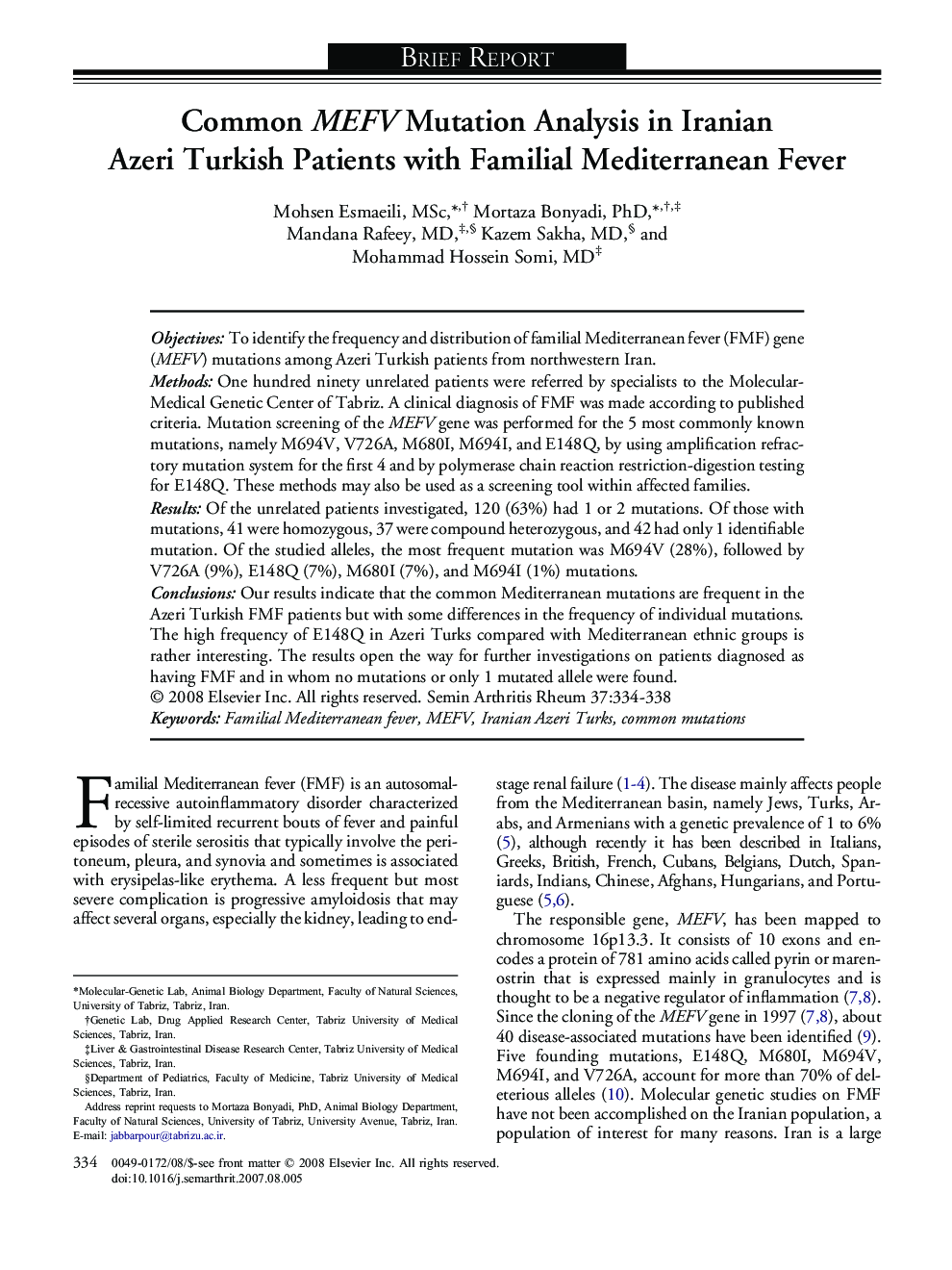| Article ID | Journal | Published Year | Pages | File Type |
|---|---|---|---|---|
| 2771832 | Seminars in Arthritis and Rheumatism | 2008 | 5 Pages |
ObjectivesTo identify the frequency and distribution of familial Mediterranean fever (FMF) gene (MEFV) mutations among Azeri Turkish patients from northwestern Iran.MethodsOne hundred ninety unrelated patients were referred by specialists to the Molecular-Medical Genetic Center of Tabriz. A clinical diagnosis of FMF was made according to published criteria. Mutation screening of the MEFV gene was performed for the 5 most commonly known mutations, namely M694V, V726A, M680I, M694I, and E148Q, by using amplification refractory mutation system for the first 4 and by polymerase chain reaction restriction-digestion testing for E148Q. These methods may also be used as a screening tool within affected families.ResultsOf the unrelated patients investigated, 120 (63%) had 1 or 2 mutations. Of those with mutations, 41 were homozygous, 37 were compound heterozygous, and 42 had only 1 identifiable mutation. Of the studied alleles, the most frequent mutation was M694V (28%), followed by V726A (9%), E148Q (7%), M680I (7%), and M694I (1%) mutations.ConclusionsOur results indicate that the common Mediterranean mutations are frequent in the Azeri Turkish FMF patients but with some differences in the frequency of individual mutations. The high frequency of E148Q in Azeri Turks compared with Mediterranean ethnic groups is rather interesting. The results open the way for further investigations on patients diagnosed as having FMF and in whom no mutations or only 1 mutated allele were found.
